#comrads patrice
Explore tagged Tumblr posts
Text

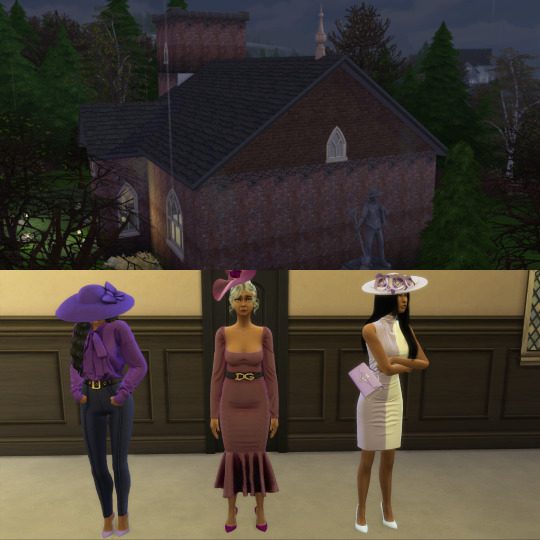
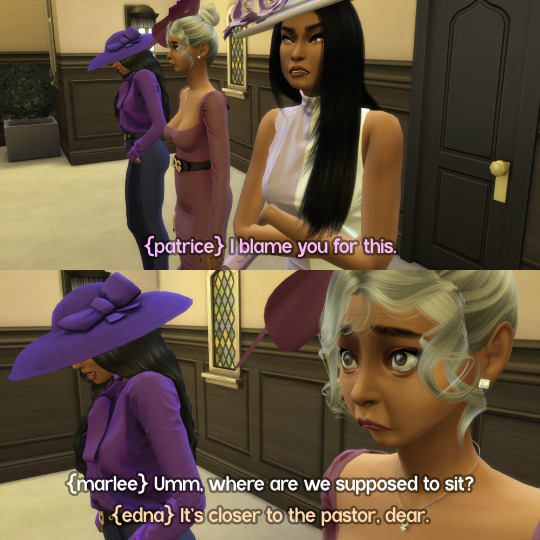
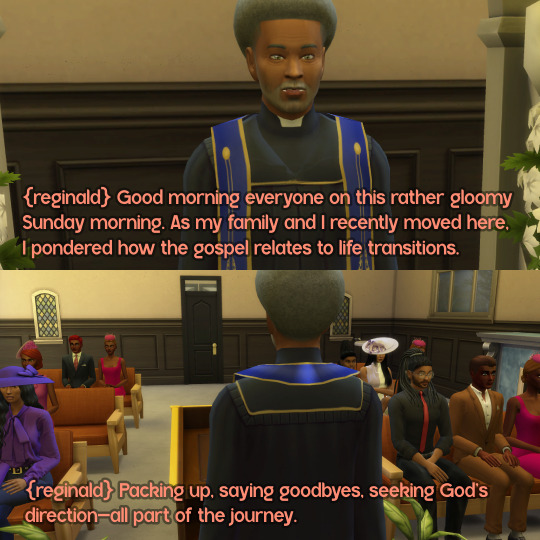
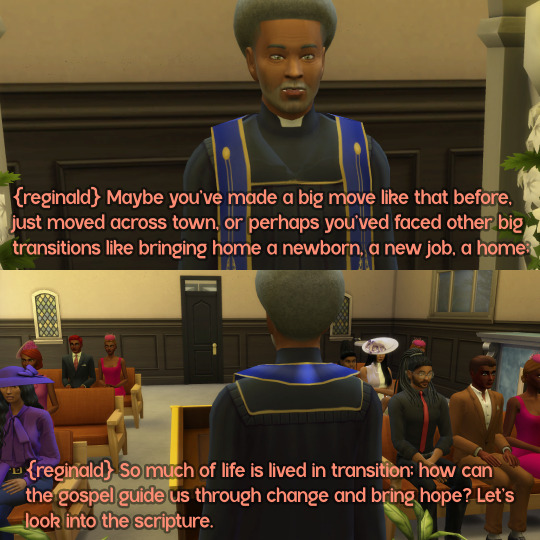
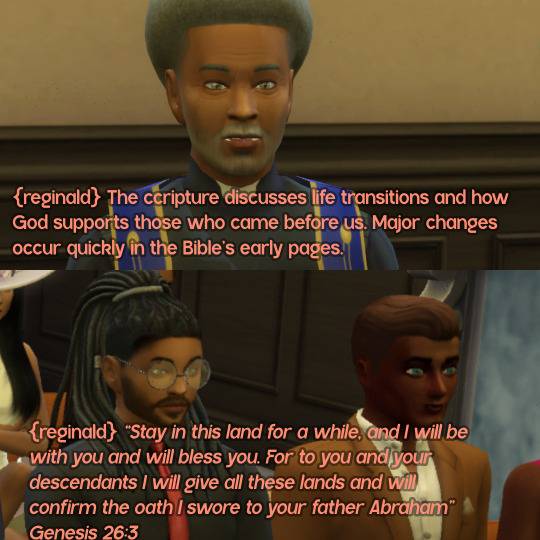
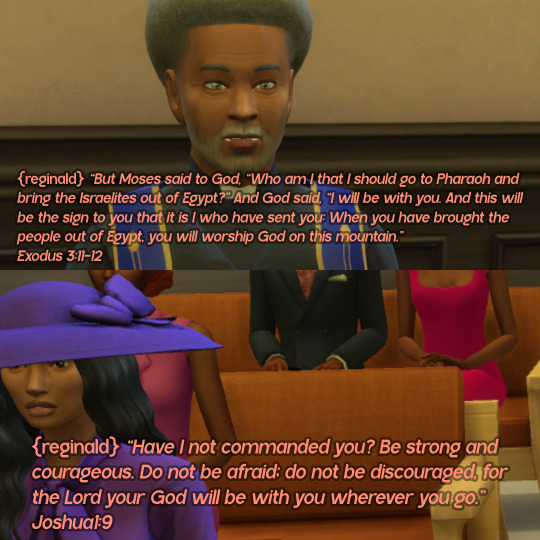
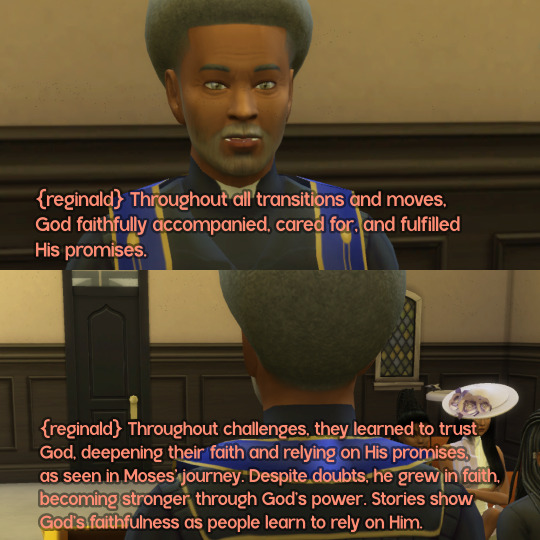
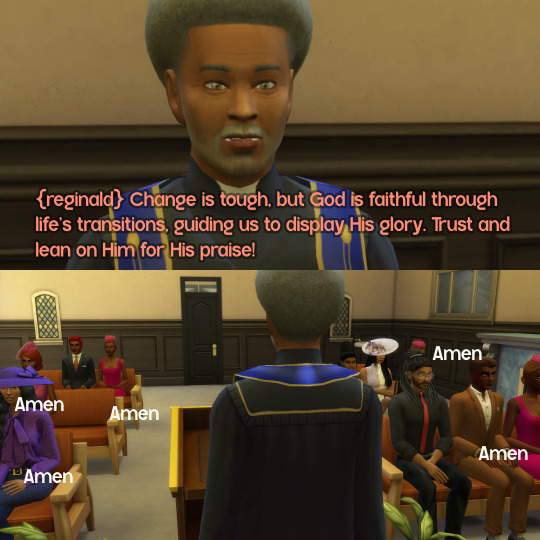
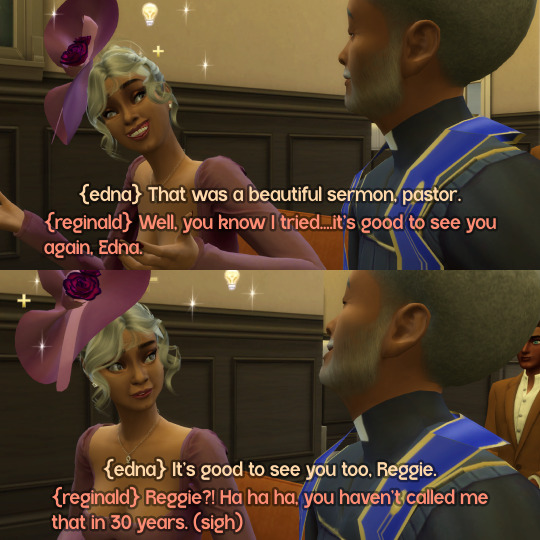
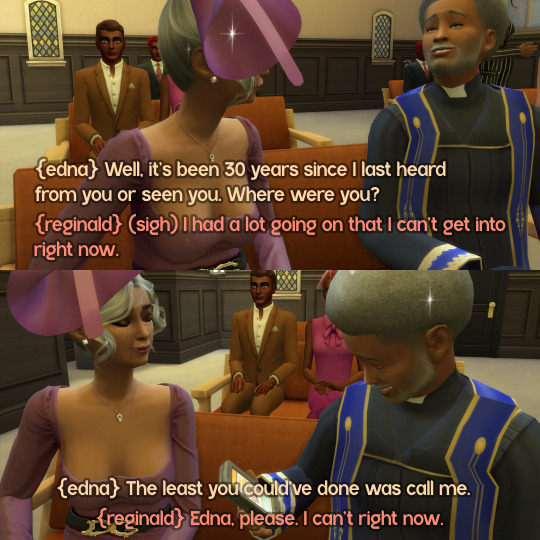
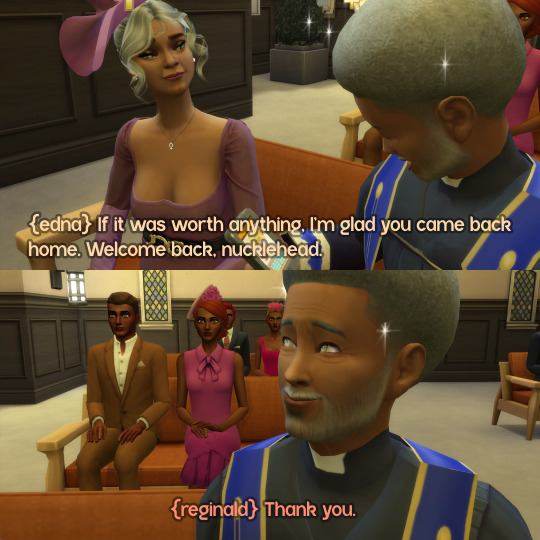
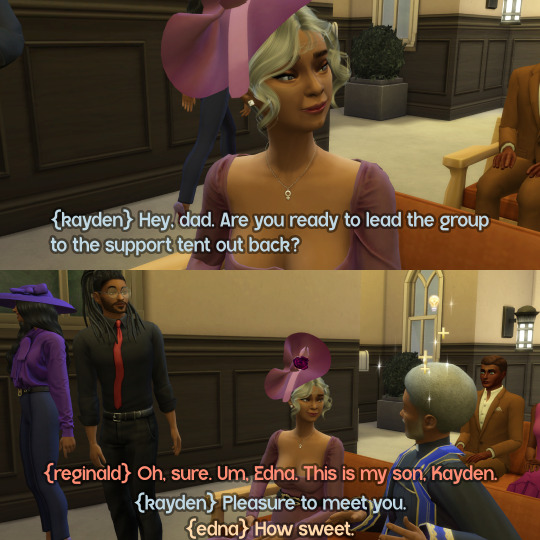
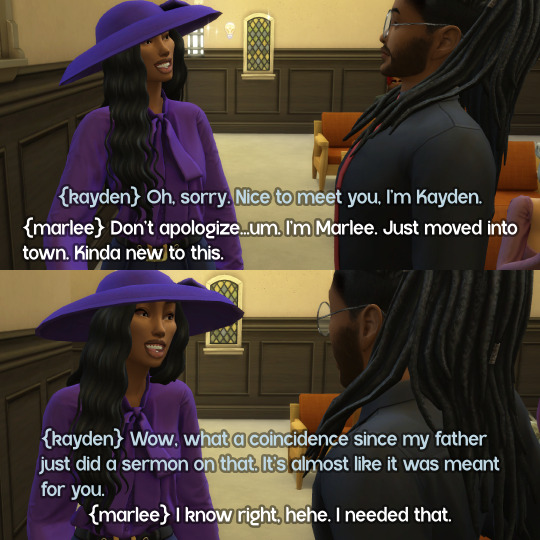
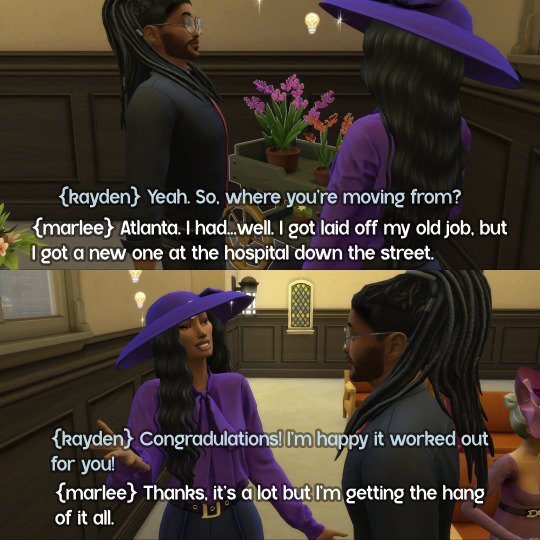
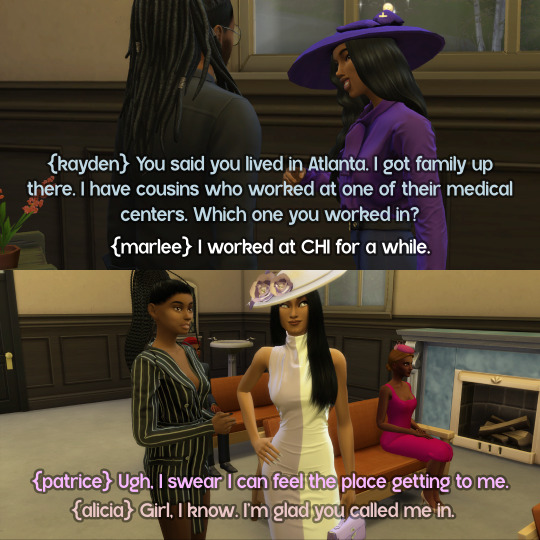
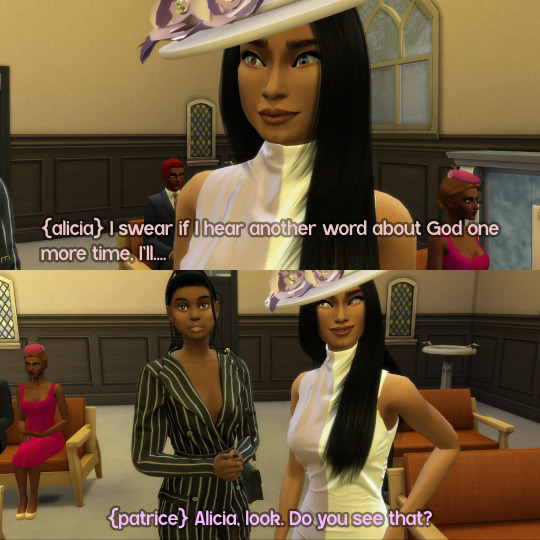
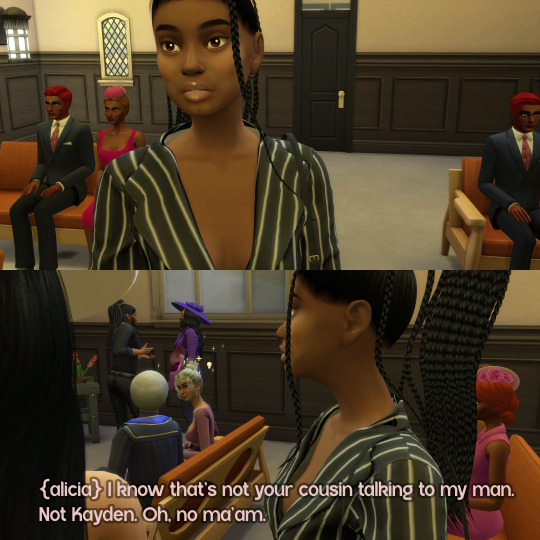
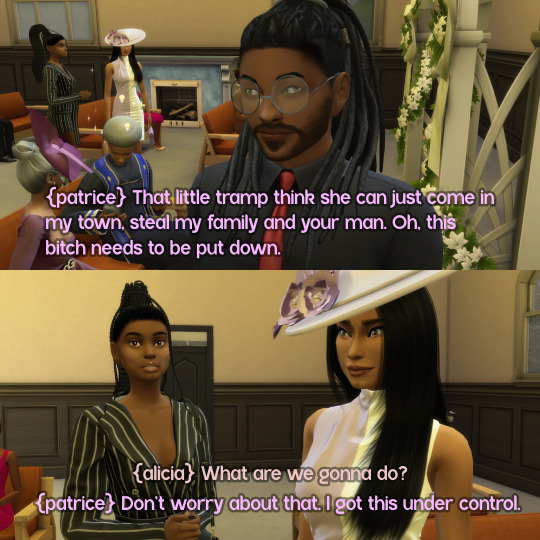
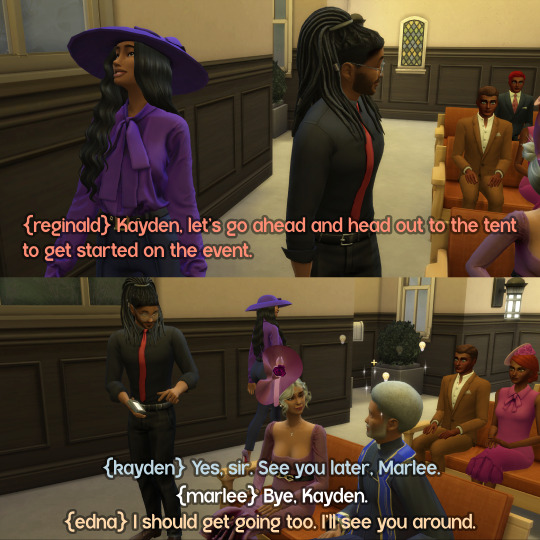
My Life pt. 3
previous | beginning | next
tags: @havenroyals @budgie2budgie @ts4-poses @nightlifeseries @nightlifeseriescc @plut0sw0rld
@charey111 @tiallussims @igglemouse @enniewritesathing @ninawhims @maggiegepardyt @simsjerry
@unicorns-land @hausofmao @allrosenrot @thefabianworld @miss-may-i @weirdosalike @mysimsloveaffair @igglemouse
#dramasims#sims 4 drama#dramasimstv#simlit#sims story#simblr#comrads#black simblr#black sims cc#comrads edna#comrads patrice#comrads marlee#comrads kayden#comrads reginald#comrads alicia
8 notes
·
View notes
Text
family
prompt: familial curse
whumpee: river cartwright
fandom: slough house, slow horses
hii here's yet another sh fic...i fear that i cannot stop writing this series oops. anyway this is a short little introspective thing ft. river's thoughts on family following book/season 4. hope you like!
River wonders, sometimes, if he’s not a little bit cursed.
He’d thought about this a fair amount even before everything—starting when he was seven years old and undergoing the painful process of realizing that his mother had left him behind. He’d wondered, throughout his childhood (still wonders, in quiet and painful moments), what he possibly could have done for her to abandon him. He’d been seven years old.
And then he’d gotten exiled to Slough House, and the old question of why me had found a new expression. Betrayal and anger and at last, resignation.
And now this. The discovery of his father. Of half-brothers and could-have-been comrades in an insane war.
The thought of a familial curse cycles through his head, sometimes. The fact that Patrice, Bertrand, Yves, are all dead. That his father had been willing—and could easily have succeeded—to kill him. Death and pain seem to follow them around.
He wonders whether his blood is tainted. Whether this is why his mother had left him. If there is some part of his father that has been expressing itself in River, without his knowledge.
He wonders if it’s better to know, and can’t decide.
Mostly, he thinks that he wishes for his family to be only himself, his grandmother, and the OB, without traces of anyone else. To not have the constant wound that is his mother’s relative disappearance from his life continue to ache. To not know that his father is a murderous maniac who’d like very much to kill him, having failed to recruit him to his cause, to raise him a loyal soldier. To not know that he’d had siblings, to wonder whether they’d been at all alike, to think how he could have turned out just like them.
Which is to say, dead.
But he’s alive, and he’s not sure whether this makes him more or less cursed. Whether his father’s blood, pumping through his veins, makes him better or worse.
--
It’s not only his father’s blood, though. Nor is it wholly his mother’s. It’s his grandparents’. Rose and David, his family.
Maybe this makes up for the curse, in some sense. At the end of it all, he’s a Cartwright. Not anything else. Not his father’s soldier or his mother’s son.
There’s a family there, a real one, even if other actors lurk to its edges. It is a family that he is losing more and more of every day, but still.
He’s a Cartwright, and perhaps that’s enough.
thanks for reading!! love you all <3
#whumptober2024#no.13#familial curse#fic#slough house#slow horses#river cartwright#emotional whump#angst#my writing#i say things#this is not the best but i am tired so it's what i got#ough the pain of having things to do all the time#also i did play it a little fast and loose with the prompt but such is.
21 notes
·
View notes
Text
If humanity cannot share the same future it will share the same doom
The post is machine translated
Translation is at the bottom
The collective is on telegram
🇧🇯 Dopo aver incontrato il Compagno Zhao Leji, Patrice Talon - Presidente della Repubblica del Benin - ha avuto un Colloquio con il Compagno Li Qiang - Primo Ministro della Repubblica Popolare Cinese 🇨🇳
💕 Cina e Benin, ha dichiarato Li Qiang, hanno mantenuto - negli anni - un'amicizia sincera, e le Relazioni tra i due Paesi sono diventate un Modello di Rispetto Reciproco (相互尊重) e parità di trattamento tra Paesi in Via di Sviluppo 🤝
🌳 獨木不成林單弦不成音 | Più alberi creano una foresta, Futuro Condiviso per i Paesi in Via di Sviluppo 🥰
🇨🇳 La Cina sostiene fermamente il Benin e il Popolo Beninese nella ricerca e nel perseguimento di un proprio percorso di sviluppo, adatto alle proprie condizioni materiali e nazionali 🤝
🇨🇳 Così come la Cina promuove la Modernizzazione Cinese, che presenta 5 Caratteristiche, per portare a compimento - entro il 2049 - il Progetto di Trasformazione della Cina in un Grande Paese Socialista Moderno sotto ogni Aspetto (全面建成社会主义现代化强国), nonché il Grande Ringiovanimento della Nazione Cinese (中华民族伟大复兴), è giusto che anche il Benin costruisca un proprio percorso di Modernizzazione, senza interferenze esterne 🥰
😘 La Cina è disposta ad espandere la Cooperazione a Mutuo Vantaggio (合作共赢) con il Benin in molteplici settori, dalle Infrastrutture all'Informatica, dagli scambi culturali alla produzione industriale 🤝
🇧🇯 Il Presidente Talon ha dichiarato che la Cina ha sempre costituito e costituisce un esempio di sviluppo per i Paesi Africani, e che il Benin apprezza sinceramente il sostegno e l'assistenza che la Cina ha fornito al Paese e alle altre Nazioni Africane 💕
🇧🇯 Il Benin intende imparare dallo sviluppo della Cina, approfondendo la Cooperazione nell'Industria, nell'Agricoltura e negli Investimenti, per costruire - ed è molto bello che questo concetto l'abbia citato un Presidente Africano - una Comunità dal Futuro Condiviso (人类命运共同体) 💕
❤️ 人类命运共同体 mostra che l'Umanità (人类, rénlèi) ha un Destino Comune (命运共同, mìngy��n gòngtóng), e che la Cooperazione è il corretto percorso per il raggiungimento della Prosperità Comune (共同富裕) ❤️❤️
🌸 Iscriviti 👉 @collettivoshaoshan
🇧🇯 After meeting Comrade Zhao Leji, Patrice Talon - President of the Republic of Benin - had an interview with Comrade Li Qiang - Prime Minister of the People's Republic of China 🇨🇳
💕 China and Benin, said Li Qiang, have maintained - over the years - a sincere friendship, and the relations between the two countries have become a model of mutual respect (相互尊重) and equal treatment between developing countries 🤝
🌳 獨木不成林單弦不成音 | More trees create a forest, Shared Future for Developing Countries 🥰
🇨🇳 China strongly supports Benin and the Beninese people in seeking and pursuing their own development path, suited to their material and national conditions 🤝
🇨🇳 Just as China promotes Chinese Modernization, which has 5 Characteristics, to complete - by 2049 - the Transformation Project of China into a Great Modern Socialist Country in Every Aspect (全面建成社会主义现代化强国), as well as the Great Rejuvenation of the Chinese Nation (中华民族伟大复兴), it is right that Benin also builds its own path of Modernization, without external interference 🥰
😘 China is willing to expand the Mutual Benefit Cooperation (合作共赢) with Benin in multiple sectors, from Infrastructure to Information Technology, from cultural exchanges to industrial production 🤝
🇧🇯 President Talon stated that China has always set and sets an example of development for African countries, and that Benin sincerely appreciates the support and assistance China has provided to the country and other African nations 💕
🇧🇯 Benin intends to learn from China's development, deepening Cooperation in Industry, Agriculture and Investments, to build - and it is very nice that an African President mentioned this concept - a Community with a Shared Future (人类命运共同体) 💕
❤️ 人类命运共同体 shows that Humanity (人类, rénlèi) has a Common Destiny (命运共同, mìngyùn gòngtóng), and that Cooperation is the correct path to achieve Common Prosperity (共同富裕) ❤ ️❤️
🌸 Subscribe 👉 @collettivoshaoshan
#socialism#china#italian#translated#collettivoshaoshan#communism#china news#marxism leninism#marxist leninist#xi jinping#marxist#marxismo#marxism#multipolar world#multipolarity#geopolitica#geopolitics#asia news#africa news#benin#Zhao Leji#li qiang#Patrice Talon#socialismo#socialist
1 note
·
View note
Text
Dumb Gundam 00 thought/headcanon I had at 4 am:
Assuming that Patrick Colasour is French and the French version of Patrick is Patrice, his real name is actually Patrice Colasour. But when he joined the AEU military so many of his English-speaking comrades made fun of his "feminine" name (as Patrice is a feminine name in English-speaking countries) that he Anglisized his frist name to Patrick.
3 notes
·
View notes
Photo

Three comrades Aesthetic - Erich Maria Remarque
Character - Patrice Hollmann
“Then when I am sad and understand nothing anymore, I say to myself that it’s better to die while you still want to live, than to live and want to die.”
14 notes
·
View notes
Photo
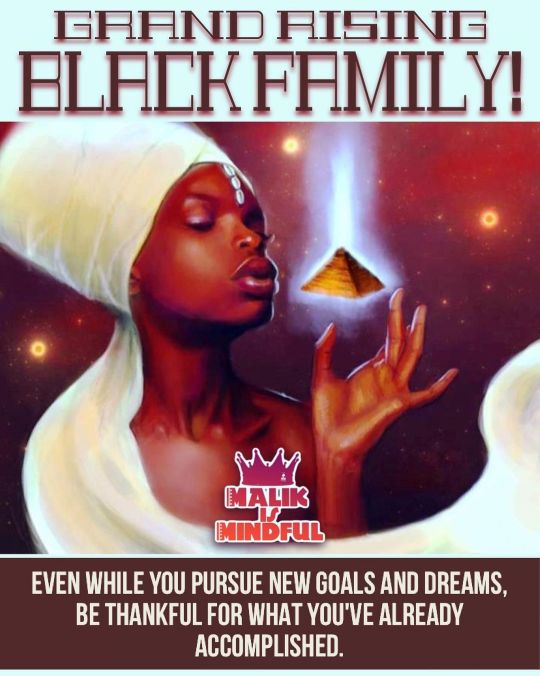
Peace and Love Nyeusi Jamaa (Swahili for Black Family)! As a soldier, I often think of the battle ahead and rarely about what has been accomplished thus far! I live to fight another second, minute, hour, day, week, month, year, decade, and so on. I don't always take into consideration that we have come such a long way in terms of consciousness! I'm too consumed visualizing the steps it will take for us to liberate ourselves beyond where we are now at times. However, thinking back...Afrikans here in the wilderness of North AmeriKKKa have come quite a long way! We've raised our consciousness so much that it's amazing to see the conversations that we are now having amongst ourselves, despite the pushback that we get for enlightening our people to what this world really has done to us all. I am grateful for Noble Drew Ali, Marcus Garvey, the Most Honorable Elijah Muhammad, Malcolm X, Comrade George Jackson, Fred Hampton, Steve Biko, Thomas Sankara, Patrice Lumumba, Kwame Nkrumah, Fannie Lou Hamer, Assata Shakur, Dr. Frances Cress Welsing, Sister Shahrazad Ali, John Henrik Clarke, and the Honorable Minister Louis Farrakhan for the knowledge and examples given to us! If we had been born in the 1700s and 1800s, even the early 1900s, we may have not been so blessed to have these great people and many others provide us the frameworks of knowledge that we have now! What we must do is incorporate their blueprints for success! We have all we need to overcome! We don't need anything but to unify under the red, black, and green! We have accomplished so much, but the war is faaaaaar from over and we must continue until Abibifahodie is OUR REALITY! GET ON CODE. STAY ON CODE.🩸💣🔫✊🏾 BLACK POWER! #blackpower #blacklove #blackman #blackwoman #blackempowerment #blackrevolution #raceonly #loyalty #oncode #blackpeopleonly #love #blackfathers #blackrevolutionary #power #truth #knowledge #blackconsciousness #freedom #strategy #blackqueen #blackunity #blacksunite #family #blacknationalism #african #panafrican #blackpeople #blackowned #malikismindful https://www.instagram.com/p/CS9SsGWLDrmd-k1xDnZzp02Y8J6Z4a4Net5ShA0/?utm_medium=tumblr
#blackpower#blacklove#blackman#blackwoman#blackempowerment#blackrevolution#raceonly#loyalty#oncode#blackpeopleonly#love#blackfathers#blackrevolutionary#power#truth#knowledge#blackconsciousness#freedom#strategy#blackqueen#blackunity#blacksunite#family#blacknationalism#african#panafrican#blackpeople#blackowned#malikismindful
18 notes
·
View notes
Text
Is there any evidence that BLM is being run by Communists and Marxists, and if so what is that evidence?
Is there any evidence that BLM is being run by Communists and Marxists, and if so what is that evidence? TL;DR: Yes, there is absolutely a widespread Communist influence on the coordinators of BlackLivesMatter, all the way from the founders at the top to individual state-level leadership.
1) The biggest piece of evidence is statements made by the founders themselves.
• Patrice Cullors, one of the starting founders and top leaders of BLM along with Alicia Garza and Opal Tometi, did a 2015 videotaped interview with a progressive media outlet called TheRealNews.com.
Radio Host: "There is a concern that there is a lack of perhaps, ideological direction in BlackLivesMatter, that would allow it to fizzle out in comparison to OccupyWallStreet. As you are advanced in your own organization, as you are headed to Cleveland to participate in this BlackLives movement conference, how do you respond to that particular critique?"
Cullors: "The first thing I think is that, we actually do have an ideological frame. Myself and Alicia in particular are trained organizers. We are trained Marxists. We are super versed on, sort of, ideological theories."
There is basically only one reasonable way to interpret this. Either Cullors is a Marxist outright or at the very least she believes Marxist ideology is an important part of BLM because she mentioned it as an explicit answer to the question "is there an ideological direction in BlackLivesMatters?".
• The other person mentioned above, Alicia Garza, wrote in her self-bio on blackpast.org that "Garza describes herself as a queer social justice activist and a Marxist". That article was written in June 2018, so not long ago. However in the last month, the mention of Marxism on her bio has been deleted. A charitable observer could conclude that means she no longer identifies with Marxism. A less charitable observer may conclude that she is trying to hide her political leaning from the public now that BLM is more popular. It is impossible to look into people's minds so it would be unfair to guess one way or another. But we can confidently say that for the first several years of the organization's founding, she too identified as a Marxist.
• The third founder, Opal Tometi, has not explicitly linked herself to Marxism. However she has also indicated sympathy for the ideals of socialist nations. In a very long open letter she states Hugo Chavez was a fair democratic leader with a positive legacy, and that it is slander to call him a dictator. "In these last 17 years, we have witnessed the Bolivarian Revolution champion participatory democracy and construct a fair, transparent election system recognized as among the best in the world... we denounce the corporate media lies about electoral corruption voiced by Hillary Clinton, and Bernie Sander’s defamation of late President Hugo Chavez labeling him a dictator."
2) Of course, BLM is not a monolithic organization, so the fact that all 3 founders have sympathy for communist ideals doesn't imply every BLM activist feels the same way. That then leads to the question: what are the political leanings of ground-level leadership who do the daily coordinating? Similar sentiments have been echoed by lower level leadership across the country. BlackLivesMatters DC, for example, is one of the biggest sub-groups within the movement, and includes on its webpage a dedication to "creating the conditions for Black Liberation through the abolition of systems and institutions of white supremacy, capitalism, patriarchy and colonialism." By definition, the abolition (not reform or tempering, but abolition) of capitalism is a clear endorsement of the socialist-communist spectrum. Seeing that capitalism is an economic system based on the private ownership of the means of production and their operation for profit, abolishing that would necessarily mean not allowing private ownership of means of production and not allowing private profit. In other words, total publicly distributed ownership of property. In other words, somewhere on the spectrum between socialism and communism.
3) Usage of terminology frequently associated with Marxists. This latter point is circumstantial but relevant. BLM frequently uses words and terms that have a rich interconnection with communist movements. Notably "comrade", a preferred term for communists to refer to each other throughout the 20th century. The word comrade shows up all over the place in BLM. The national BLM website says on their main page, "we recommit to healing ourselves and each other, and to co-creating alongside comrades". BLM Los Angeles mentions that "we practice empathy. We engage comrades with the intent to learn about and connect with their contexts. Opal Tometi, the third BLM founder, mentioned in an interview with the New Yorker that "I worked with some amazing comrades in New York"
4) Support from communist organizations. This is again circumstantial just like #3, but relevant because it shows that socialist/communist organizations feel like the leadership of BLM is guiding the organization in a way that they like. SocialistRevolution.org did an article on outreach among BLM members and stated that "This was not the same Black Lives Matter movement from a few years ago, but represented a qualitative leap forward in consciousness for many young people who are looking for ideas. The growing openness to Marxism was evident at the end of the demonstration when our tables were swamped by people, many of whom bought our literature and asked to get involved." Communist Party USA likewise is optimistic about BlackLivesMatters and thinks that it will lead to establishment of communism in the U.S. On their website, they state Black Lives Matter has become the slogan of choice, a rallying call of demonstrators filling the streets, and a broadly accepted driving force for change.
2 notes
·
View notes
Text
In praise of ‘Skyfall’
The opening scenes of “Skyfall” – from Daniel Craig’s James Bond emerging from the shadows to the final notes of Adele’s theme song – last 16 minutes, 45 minutes. And they are the best 16 minutes, 45 seconds in any Bond movie. They are arguably the best opening 16 minutes, 45 seconds in any movie.
When “Skyfall” premiered in 2012, it was an important moment in a long-lasting but inconsistent and aging movie franchise. Craig had made his debut as Bond (or as some derisively called him, James Blonde, for having lighter hair than his predecessors) in 2006’s “Casino Royale,” and it was a stunning intro. The film, considered one of the best entries in franchise history, gave us a Bond that was brutal (as in the opening scene in a men’s room, filmed in wonderfully grainy black and white) but also had a heart (he falls in love with Vesper Lynd). Craig made it clear he was not your father’s (or grandfather’s) 007, and it was a breath of fresh air for a franchise that needed one after a string of mediocre Bond films.
But then, just two years later, came “Quantum of Solace,” a noticeable step backward. Director Marc Foster opted for more of an action movie approach, and the result was a film indistinguishable from many in the genre. Much of Bond’s charm was sidestepped, and no doubt the film’s cohesiveness was hampered by a writers’ strike during its making. Some critics put “Quantum of Solace” near or even at the bottom when ranking the Bond movies.
So, the 007 franchise was at a crossroads in the early 2010s. Another so-so film would be, to detractors, more proof that James Bond had outstayed his welcome, that he was a relic of a time gone by.
A bold, new approach was needed. And a bold, new approach was taken. Producers Michael G. Wilson and Barbara Broccoli made some important decisions after “Quantum of Solace,” the most important one being bringing in British director Sam Mendes, whose 1999 film “American Beauty” won the Best Picture Oscar. Many right moves followed, from hiring cinematographer Roger Deakins (“The Shawshank Redemption,” many Coen Brothers movies) to lining up a cast that was unusually stout for a Bond movie (including award-winning actors Judi Dench, Javier Bardem, Ralph Fiennes and Albert Finney). The makers also set out to make a Bond film that emphasized its British roots and paid homage to the series’ history while also bringing it solidly into the 2010s and making it more relatable to younger viewers.
The result was a special movie, not just by James Bond standards but by any measure of great films. And that was apparent in the first 16 minutes, 45 seconds of “Skyfall.”
“Skyfall” wastes no time getting down to business. It begins with a shadowy figure walking toward the camera. The audience does not realize it is Bond until his face reaches the sunlight and he draws a gun. He discovers a comrade has been shot, and an important computer hard drive has been stolen (technology and our use of it being one of the important themes). Bond wants to help his fellow agent, but “M” (Dench) is more concerned with the hard drive, and this is important in establishing her concern with country above all else.
Then the action begins, and it is breathtaking. Bond chases the bad guy (the one with the hard drive), Patrice (Ola Rapace), through the open-air markets of Istanbul, driven around by Eve Moneypenny (Naomie Harris), though we won’t know she is Moneypenny until the film’s ending. The chase shifts to motorcycles, first along rooftops, then inside the Grand Bazaar shopping mall, then back on streets before Bond purposely crashes his motorcycle into the side of a bridge, somersaults and somehow manages to grab on to a train boxcar below with just one arm. Caught your breath yet?
Bond uses a bulldozer (and gets shot while maneuvering it) to smash into the train and, in a nod to Bond tradition, adjusts his cuffs while entering the open end of a passenger car. He and Patrice fight on top of the train rolling through the Turkish countryside, ducking to get through tunnels, until Moneypenny, who has followed alongside the train in a vehicle, is left with only one choice: shooting at the men and hoping she hits Patrice instead of 007.
Moneypenny complies with M’s orders (“Take the bloody shot!”) and hits Bond, who falls off and takes a long dive into the waters below. When Moneypenny reports to MI6 headquarters “agent down,” M turns to look out a window at a rainy London outside, and the sound of the rain morphs into Bond floating in river rapids, presumably dead like so many Bonds before him.
The lifeless body of 007 goes over a waterfall and plunges into the water just as the first brass notes kick off Adele’s theme song. It marks another brilliant choice by the filmmakers. Adele is British (the previous two Bond theme songs had been performed by Americans Chris Cornell and the duo of Alicia Keys and Jack White) and was at the height of her popularity, and she and fellow songwriter/producer Paul Epworth came up with a song that was, like the movie, both fresh but decidedly Bond.
The song is the stuff of goosebumps, especially as it plays over the titles sequence (another Bond tradition) by Daniel Kleinman. The sequence is visually stunning, the best in the history of the franchise, from a woman’s hand pulling the floating Bond into some unknown, fantastical place to the camera zooming in until it takes us all the way into Bond’s left eye. It’s all there: guns, beautiful women, blood, characters past and current, shadowy figures, hints of what is to come and, of course, Bond. It’s mesmerizing.
The opening 16 minutes, 45 minutes set a lofty bar, and for the most part “Skyfall” clears it. Dench is at her best, and that’s saying something. Bardem’s Silva is an intriguing, creepy and menacing villain. Harris and Ben Whishaw as “Q” breathe new life into important characters audiences expected to see. Craig, as an agent getting on in years but still driven by an uneasy love of country, recaptures the magic from “Casino Royale.” “Skyfall” is beautifully conceived and shot, and it hints at Christopher Nolan’s “The Dark Knight,” another film by a British director that preceded Mendes’ take on Bond by four years and, like “Skyfall,” was deserving (but did not get) a Best Picture nomination.
“Skyfall” is an important bridge between Bond’s past and present. Mendes could not capture lightning in a bottle twice (his follow-up “Spectre” being a solid middle-of-the-pack entry in the series), but he made the best of the Bond movies at a time when the franchise desperately needed it. And he and everyone involved made one incredible 16 minutes, 45 seconds of movie magic.
65 notes
·
View notes
Photo
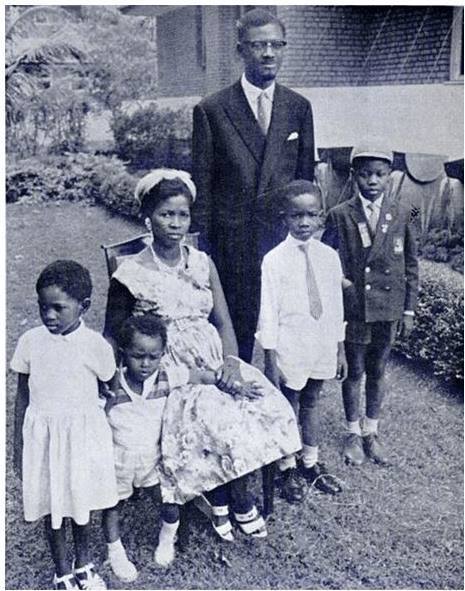
January 17, 1961: Patrice Lumumba murdered on CIA orders in the Congo.
Lest We forget: The last letter written by Patrice Lumumba to his wife, Pauline, just before his death on January 17, 1961. "My beloved companion, I write you these words not knowing whether you will receive them, when you will receive them, and whether I will still be alive when you read them. Throughout my struggle for the independence of my country, I have never doubted for a single instantthat the sacred cause to which my comrades and I have dedicated our entire lives would triumph in the end. But what we wanted for our country — its right to an honorable life, to perfect dignity, to independence with no restrictions — was never wanted by Belgian colonialism and its Western allies, who found direct and indirect, intentional and unintentional support among certain high officials of the United Nations, that body in which we placed all our trust when we called on it for help. They have corrupted some of our countrymen; they have bought others; they have done their part to distort the truth and defile our independence. What else can I say? ‘That whether dead or alive, free or in prison by order of the colonialists, it is not my person that is important. What is important is the Congo, our poor people whose independence has been turned into a cage, with people looking at us from outside the bars, sometimes with charitable compassion, sometimes with glee and delight. But my faith will remain unshakable. I know and feel in my very heart of hearts that sooner or later my people will rid themselves of all their enemies, foreign and domestic, that they will rise up as one to say no to the shame and degradation of colonialism and regain their dignity in the pure light of day. We are not alone. Africa, Asia, and the free and liberated peoples in every corner of the globe will ever remain at the side of the millions of Congolese who will not abandon the struggle until the day when there will be no more colonizers and no more of their mercenaries in our country. I want my children, whom I leave behind and perhaps will never see again, to be told that the future of the Congo is beautiful and that their country expects them, as it expects every Congolese, to fulfill the sacred task of rebuilding our independence, our sovereignty; for without justice there is no dignity and without independence there are no free men. Neither brutal assaults, nor cruel mistreatment, nor torture have ever led me to beg for mercy, for I prefer to die with my head held high, unshakable faith, and the greatest confidence in the destiny of my country rather than live in slavery and contempt for sacred principles. History will one day have its say; it will not be the history taught in the United Nations, Washington, Paris, or Brussels, however, but the history taught in the countries that have rid themselves of colonialism and its puppets. Africa will write its own history and both north and south of the Sahara it will be a history full of glory and dignity. Do not weep for me, my companion; I know that my country, now suffering so much, ‘will be able to defend its independence and its freedom. Long live the Congo! Long live Africa! Patrice"
Via Ray Winbush
194 notes
·
View notes
Text
David Grundy | A Black Arts Poetry Machine
(Bloomsbury)
The Umbra Poets Workshop was formed in the early 1960s in the atmosphere of artistic and political radicalism that saw African-American protestors disrupt the business-as-usual order of the UN building in New York in protest at the murder of Patrice Lumumba. One of the participating groups, the On Guard Committee for Freedom -- a political organisation -- essentially then coalesced into a more artistically-focused group, the Umbra Workshop. The group held regular meetings at Tom Dent's flat, in which they would get together to discuss each other's in-progress work, and were an active presence in the New York poetry scene of the time. Consisting of a fluctuating, but always large, membership, they aimed to form a publication, workshop and reading environment at a time when the poetry scenes around them were almost exclusively white. The group also started a magazine, of which two issues were produced during its most active period, with further issues appearing at periodic intervals later on, after the group had officially disbanded.
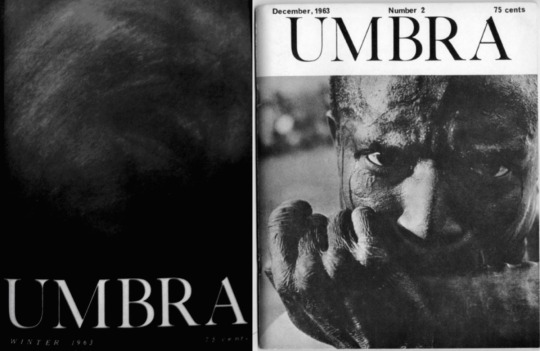
Copies of the magazine are rarer than hen's teeth these days -- there was talk of an Umbra reader coming out from CUNY's Lost and Found programme, but I haven't seen or heard any news of that for a while. Let's hope that something happens! But Umbra was always more than just a magazine. Calvin Hernton described the explosive impact Umbra Poets would make at readings within the predominantly white New York poetry scene of the time: sometimes appearing eight-to-ten at a time, they appeared, in his words, like "a dynamic, well-rehearsed black arts poetry machine". So while Baraka has often been essentially credited with 'founding' the Black Arts Movement, establishing the Black Arts Repertory Theatre/School in Harlem after Malcolm X's death in 1965 -- an enterprise in which members of Umbra were involved -- Umbra should be understood as laying the ground -- and, perhaps, offering examples of roads not taken. Umbra are sometimes credited in histories of the period as precursors, but their work is almost never considered in depth. Hence this book! (I'm also played to say that another book, by Jean-Phillipe Marcoux, is in the works -- watch this space...)
Of course, the Black Arts Movement challenged easy divisions between the political and the aesthetic, and politics was also key to Umbra. The book's first chapter discusses the 1961 UN protest and the emergence of Umbra, along the way offering readings of poems that emerged from the protest and its environment by Ishmael Reed, Raymond R. Patterson, Askia Toure, Ray Durem and Lorenzo Thomas. Here's one of them:

I use this chapter to argue that, at this point in time, tradition of African-American internationalism was already in existence -- involving Baraka, to be sure, but alongside many other now-forgotten figures, not least the Umbra poets. Umbra itself was short-lived, but it set in motion a number of hugely important careers -- to list them partially, beginning with perhaps the most famous, that of Ishmael Reed, but also of Lorenzo Thomas -- later on, a Black Arts scholar,and throughout, for my money, one of the most unjustifiably-neglected poets in America of the second-half of the Twentieth Century (though thankfully a collected poems is forthcoming -- this is a bit of a boom-time for Umbra, it seems!); and of Tom Dent, 'New Orleans Griot' (likewise, an invaluable Dent Reader came out last year -- edited by Dent's friend and comrade Kalamu ya Salaam, you can get it here); of David Henderson, maybe best known as the first biographer of Jimi Hendrix, collaborator with Sun Ra, Ornette Coleman and others, poet of what he calls the 'third eye/world' of diasporic culture in America; of Calvin C. Hernton, author of the controversial Sex and Racism in America, attendee of R.D. Laing's Kingsley Hall and meetings of the Caribbean Artists Movement, novelist and poet; of N.H. Pritchard, whose experimental concrete poetry has recently been addressed by Fred Moten and in Anthony Reed's Freedom Time; Lloyd Addison, perhaps the most experimental of the Umbra poets, author of prodiguous, often self-published output, allusive, punning and singular; Askia Toure (then Rolland Snellings), today one of the eminent grises of the Black Arts Movement; Rashidah Ismaili, whose Autobiography of the Lower East Side has been getting some recent praise, and who should (as is the case with all these writers) be far better-known; Steve Cannon, still an active figure in New York artistic scenes; did I mention that Archie Shepp and Cecil Taylor were also involved?! -- and all that's just the half of it...
Within a single book, I wasn't able to write on every member of the workshop, so, after the ensemble first chapter on the Lumumba Protest, each subsequent chapter focuses on one principal writer. Though Amiri Baraka was never a member of the workshop, he knew a number of the Umbra poets and invited them to perform in the Black Arts Repertory Theatre / School. (Here's Clayton Riley's review of the event for Liberator, alongside some images from the feature on 'five young afro-american poets' in French left magazine Revolution, which sets Baraka alongside Umbra poets Lorenzo Thomas and Joe Johnson, as well as A.B. Spellman and a very young Sonia Sanchez.)
While Baraka's Black Arts work is too often taken in isolation, as if suddenly it emerged in an explosion of provocative militancy, setting it against the backdrop of Umbra helps us -- I hope! -- read it anew. So the book's second chapter turns to Baraka's response to urban insurrection and stereotypes of African-American militancy in the iconic mid-60s poems 'Black Dada Nihilismus', 'Black Art' and 'Black People!'.
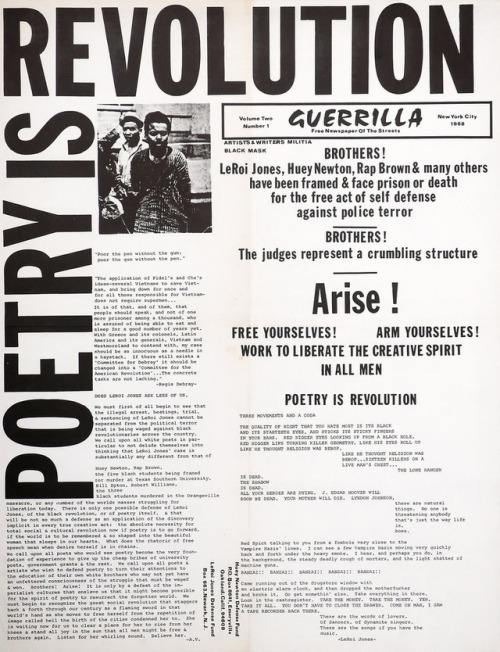
The third chapter concentrates on David Henderson's poetry, charting the complexities of New York racial politics at the time -- as he writes, 'Harlem to Lower East Side, space of a nation' -- and in particular the 1964 Harlem Rebellion, from which emerged his poem 'Keep on Pushing'. We then get Calvin C. Hernton's writings on riots, in poetry and in an incendiary essay 'Dynamite Growing Out of their Skulls!', published in Baraka's and Larry Neal's anthology Black Fire; and another Hernton chapter, on his poem 'Medicine Man', read for its complex and tortured address to the American South.
Next up, a chapter on Tom Dent, which touches on his work with The Free Southern Theatre, who courageously toured the South, eventually settling in New Orleans, and thence his own poetry emerging from the city -- notably, the long poem 'Return to English Turn'. Finally, there's a chapter on Lorenzo Thomas's poem 'The Bathers', one of the great poems of the Black Arts Movement, and its (re)writing of the 1963 protests in Birmingham, Alabama. (I also touch here on Ishmael Reed's amazing early prose-poem 'The Ghost in Birmingham' -- subsequently the first item in his collected poems, it appeared in the magazine Liberator in the early 60s and is as good an indication as any of just how the good the writing coming out of Umbra could be.)
taken from here: STREAMS OF EXPRESSION
19 notes
·
View notes
Text
Patrice Lumumba was prime minister of a newly independent Congo for only seven months between 1960 and 1961 before he was murdered, fifty-six years ago today. He was thirty-six.
Yet Lumumba’s short political life — as with figures like Thomas Sankara and Steve Biko, who had equally short lives — is still a touchstone for debates about what is politically possible in postcolonial Africa, the role of charismatic leaders, and the fate of progressive politics elsewhere.
The details of Lumumba’s biography have been endlessly memorialized and cut and pasted: a former postal worker in the Belgian Congo, he became political after joining a local branch of a Belgian liberal party. On his return from a study tour to Belgium arranged by the party, the authorities took note of his burgeoning political involvement and arrested him for embezzling funds from the post office. He served twelve months in prison.
Congolese historian Georges Nzongola-Ntalaja — who was in high school during Lumumba’s rise and assassination — points out that the charges were trumped-up. Their main effect was to radicalize him against Belgian racism, though not colonialism. Upon his release in 1957, Lumumba, by now a beer salesman, was more explicit about Congolese autonomy and helped found the Congolese National Movement, the first Congolese political group which explicitly disavowed Belgian paternalism and tribalism, called unreservedly for independence, and demanded that Congo’s vast mineral wealth (exploited by Belgium and Euro-American multinational firms) benefit Congolese first.
For Belgian public opinion — which played up Congolese ethnic differences, infantilized Africans, and in the late 1950s still had a thirty-year plan for Congolese independence — Lumumba and the Congolese National Movement’s pronouncements came as a shock.
Two months after his release from prison, in December 1958, Lumumba was in Ghana, at the invitation of President Kwame Nkrumah who had organized the seminal All Africa People’s Conference. There, as a number of other African nationalists pushing for political independence listened, Lumumba declared:
The winds of freedom currently blowing across all of Africa have not left the Congolese people indifferent. Political awareness, which until very recently was latent, is now becoming manifest and assuming outward expression, and it will assert itself even more forcefully in the months to come. We are thus assured of the support of the masses and of the success of the efforts we are undertaking.
The Belgians reluctantly conceded political independence to the Congolese, and two years later, following a decisive win for the Congolese National Movement in the first democratic elections, Lumumba found himself elected to prime minister and with the right to form a government. A more moderate leader, Joseph Kasavubu, occupied the mostly ceremonial position of Congolese president.
On June 30, 1960, Independence Day, Lumumba gave what is now considered a timeless speech. The Belgian king, Boudewijn, opened proceedings by praising the murderous regime of his great-great uncle, Leopold II (eight million Congolese died during his reign from 1885 to 1908), as benevolent, highlighted the supposed benefits of colonialism, and warned the Congolese: “Don’t compromise the future with hasty reforms.” Kasavubu, predictably, thanked the king.
Then Lumumba, unscheduled, took the podium. What happened next has become one of the most recognizable statements of anticolonial defiance and a postcolonial political program. As the Belgian writer and literary critic Joris Note later pointed out, the original French text consisted of no more than 1,167 words. But it covered a lot of ground.
The first half of the speech traced an arc from past to future: the oppression Congolese had to endure together, the end of suffering and colonialism. The second half mapped out a broad vision and called on Congolese to unite at the task ahead.
Most importantly, Congo’s natural resources would benefit its people first: “We shall see to it that the lands of our native country truly benefit its children,” said Lumumba, adding that the challenge was “creating a national economy and ensuring our economic independence.” Political rights would be reconceived: “We shall revise all the old laws and make them into new ones that will be just and noble.”
Congolese congressmen and those listening by radio broke out in applause. But the speech did not sit well with the former colonizers, Western journalists, nor with multinational mining interests, local comprador elites (especially Kasavubu and separatist elements in the east of the country), the United States government (which rejected Lumumba’s entreaties for help against the reactionary Belgians and the secessionists, forcing him to turn to the Soviet Union), and even the United Nations.
These interests found a willing accomplice in Lumumba’s comrade: former journalist and now head of the army Joseph Mobutu. Together they worked to foment rebellion in the army, stoke unrest, exploit attacks on whites, create an economic crisis — and eventually kidnap and execute Lumumba.
The CIA had tried to poison him, but eventually settled on local politicians (and Belgian killers) to do the job. He was captured by Mobutu’s mutinous army and flown to the secessionist province of Katanga, where he was tortured, shot, and killed.
In the wake of his murder, some of Lumumba’s comrades — most notably Pierre Mulele, Lumumba’s minister of education — controlled part of the country and fought on bravely, but was finally crushed by American and South African mercenaries. (At one point Che Guevara traveled to Congo on a failed military mission to aid Mulele’s army.)
That left Mobutu, under the guise of anticommunism, to declare a one-party, repressive, and kleptomanic state, and govern, with the consent of the United States and Western governments, for the next thirty-odd years.
In February 2002, Belgium’s government expressed “its profound and sincere regrets and its apologies” for Lumumba’s murder, acknowledging that “some members of the government, and some Belgian actors at the time, bear an irrefutable part of the responsibility for the events.”
A government commission also heard testimony that “the assassination could not have been carried out without the complicity of Belgian officers backed by the CIA, and it concluded that Belgium had a moral responsibility for the killing.”
Lumumba today has tremendous semiotic force: he is a social media avatar, a Twitter meme, and a font for inspirational quotes — a perfect hero (like Biko), untainted by any real politics. He is even free of the kind of critiques reserved for figures like Fidel Castroor Thomas Sankara, who confronted some of the inherent contradictions of their own regimes through antidemocratic means.
As such, Lumumba divides debates over political strategy: he is often derided as a merely charismatic leader, a good speaker with very little strategic vision.
For example, in the famed Belgian historical fiction writer David van Reybrouck’s much-praised Congo: An Epic History of a People, Lumumba is characterized as a poor tactician, unstatesmanlike, and more interested in rebellion and adulation than governance. He is faulted for not prioritizing Western interests.
Lumumba’s denunciation of the Belgian king in June 1960, for example, only served to embolden his enemies, argues Van Reybrouck. Lumumba is also criticized by his Western critics for turning to the Soviet Union after the United States had spurned him.
But as the writer Adam Shatz has argued: “It’s not clear how . . . in his two and a half months in office, Lumumba could have dealt differently with a Belgian invasion, two secessionist uprisings, and a covert American campaign to destabilize his government.”
More powerful perhaps is how Lumumba operates unproblematically as a figure of defiance. As the disappointment with national liberation movements in Africa (in particular, Algeria, Angola, Zimbabwe, Mozambique, and more recently South Africa’s African National Congress) sets in, and new social movements (#OccupyNigeria, #WalktoWork in Uganda, the more radical #FeesMustFall and struggles over land, housing, and health care in South Africa) begin to take shape, references to and images of Patrice Lumumba serve as a call to arms.
In Lumumba’s native Congo, ordinary citizens are currently fighting President Joseph Kabila’s attempts to circumvent the constitution (his two terms were up in December, but he refused to step down). Hundreds have been killed by the police and thousands arrested. Kabila, who inherited the presidency from his father, who overthrew Mobutu, exploits the weakness of the opposition, especially the power of ethnicity (via patronage politics) to divide Congolese politically. In this, Kabila is merely emulating the Belgian colonists and Mobutu.
Here Lumumba’s legacy may be helpful. Lumumba’s Congolese National Movement was the only party offering a national — rather than ethnic — vision and a means to organize Congolese around a progressive ideal. Such a movement and such politicians are in short supply in Congo these days.
But Lumumba’s story offers not just an invitation to revisit the political potential of past movements and currents, but also opportunities to refrain from projecting too much onto leaders like Lumumba who had a complicated political life and who did not get to confront the messiness of postcolonial governance. It also means treating tragic political leaders as humans. To take seriously political scientist Adolph Reed Jr’s advice about Malcolm X:
He was just like the rest of us — a regular person saddled with imperfect knowledge, human frailties, and conflicting imperatives, but nonetheless trying to make sense of his very specific history, trying unsuccessfully to transcend it, and struggling to push it in a humane direction.
It is perhaps then that we can begin to make true Patrice Lumumba’s critical wish, perhaps as self reflection, that he wrote in a letter from prison to his wife in 1960:
The day will come when history will speak. But it will not be the history which will be taught in Brussels, Paris, Washington or the United Nations. It will be the history which will be taught in the countries which have won freedom from colonialism and its puppets. Africa will write its own history and in both north and south it will be a history of glory and dignity.
5 notes
·
View notes
Text













Real Love pt. 3
Trigger Warning: Moment of Sexism
previous | beginning | next
#dramasims#sims 4 drama#dramasimstv#sims 4 screenshots#sims story#comrads edna#comrads patrice#comrads marlee#comrads#black simblr#black sims 4#simlit#simblr#black simmer#black sims cc#black sims of color
6 notes
·
View notes
Text
Shades: Vampire Journal
Entry One: Storytime
Life sucks! At least that’s what I used to say..when I was human. But in my newfound life, I’ve come to realize that life does suck; for them. My name is Mikala Patrice Wittmore, I am 134 years old; A female African American Vampire living in the deep south of the great United States of America.
Born in 1887; a great-granddaughter of a slave girl. Though I lacked the conviction of chains and shackles; I was not shielded from the hate and disgust due to my melanin complexion. Glaring eyes, spatted remarks, and venomous curses were the melodies of my nightmares; grinding me down like fertilizer only to spread my misfortunes to raise their crops of supremacy.
By 1916, I had reached adulthood and decided to seek work and refuge in Baton Rouge, Louisiana. I found my “calling” as a washer-girl; cleaning soiled sheets and dirty pillows of the wretched souls at Baker Hills Asylum. One cold night on the 5th of November; After cleaning out the washtub, I was called to the bedside of a Mr. Jacques Pompri complaining of an ailment that I could not cure.
I offered a hand only to lose my mortality in return. I watched in horror as the frail man before I impaled my throat with sharp jagged fangs; the pain seething into my body.
The last thing I remembered was the taste of copper in the back of my throat, the sweet smell of burning embers, and the flickering wax candle near the bedside.
I awoke face down on the wooden floor. I choked back a gasp; shuffling across the vintage wood and finding my footing. There was no trace of Jacques; only the bloody remnants on my sternum, convincing me that what had happened last night was real.
I washed up quickly; burning my soiled blouse into the slow-burning furnace in the basement. I kept quiet to not bring any attention to myself. I was lucky to be in such a place; given the fact that I was a young negro woman in a position that they would gladly give to a beautiful white female with class and education.
It took five days for the hunger to start; I craved sustenance but food sickened me. The water tasted like metal; the sun pierced my eyes and the sounds of pulsing veins flooded my ears like a storm on the raging sea. I tried so hard to cling to my humanity; however, I was not strong enough.
Eventually, the thirst became unbearable; on June 15, I succumbed. My first victim was a son of a former enslaver; who liked me when I passed him at the market; buying flowers for a dying patient. He followed me down a narrow alleyway; peering back to make sure there would be no witnesses of his violation.
The taste of him was nectarous; like a cold glass of iced tea on a hot summer day. I drank myself drunk until that pumping sound ceased to exist. I placed him against the wall and covered his dismayed expression with his hat. I walked away from the ordeal; unscathed and better than ever. I left the flowers by the entrance of the asylum but I never returned. I had a few years' worth of savings and a place to go. I paid homage to my Gula heritage by voyaging to the Carolinas and settling in the good ole city of Charleston.
I paid 300 dollars to purchase an old cottage that was said to have been a witch house a long time ago. With a little work, blackened curtains, and a few more tweaks; my home was complete. The house was in the middle of the woods. No one dared to venture near my home due to its backstory. The people around were very superstitious; some still today.
Although I was free and serene in my new home, my skin color still labeled me a threat; an inferior being compared to those of a fairer shade.
To the women, I was a lesser creature while men saw me as an object of carnal fantasy; a toy to play with in secret, away from their wives and trusting comrades.
Their disapproval of my existence fueled me with rage but their stupidity amused the monster inside of me; inducing my hunger to unbelievable heights. Each one tasted even better than the last. The hate in their blood was like an elixir; one which I could never tire of. It was easy to go about killing in the 1900s; but like all good things, they must end. As time went by, I soon needed to find another way to indulge in my predatory desires
By 1978, I decided to go to night school and become a phlebotomist; drawing blood all night long in lonely hospitals and clinics. Although I wouldn’t call it indulging; however, it was a better humane approach to my selective diet. But as we all know; everybody slips up from time to time.
One night while I was snacking on a late midnight sample of a Mr. Johnny Fortwire; a rumored member of the Ku Klux klan, I witnessed something horrid. There were three vibrant, drunk caucasian girls hounding a young black med student who was walking home. They broke her glasses and spat in her face. Quivering with fear, she kneeled to retrieve them only for her face to meet the heel of one of the girl’s platform shoes.
The rushing sound in my ears, which I hadn’t heard for over a decade, deafened me. My throat was dry as if I had swallowed a bucket of sand. My pupils expanded and my glimmering white fangs protruded through my gums. Before I knew it, I indulged. Diet be damned, I say. It all happened so quickly, that my head spun. I was on a high and it felt like lightning coursing through my veins. During my euphoria, the young med student must have run off in horror because when I came to, she was gone. I often wonder what became of her.
As many more years went by, I started to notice the hate that once permeated the air, soon tapered off. All I detected was more peace and coexistence. It seemed to last for a good while. My hunger ached but I paid it no mind. I regressed to my original diet; clinics, hospitals, and blood banks were my fridges.
In the middle of 2020, as I sat on my porch, enjoying the croaks and howls of the night, my nose began to twitch. The familiar scent crept into my nostrils like a rat scavenging for food. I watched the media, and listened to the radio; stunned that it was back. The hate, the disapproval, the torture; it was all back. But this time, it was in everyone; not just one select group.
It was free for all; a buffet if you will.
And I’ve never been so hungry.
0 notes
Text
The West is an afterthought for Africa, China and Russia are their real partners
The post is machine translated
Translation is at the bottom
The collective is on telegram
🇧🇯 Il 31/08, Patrice Talon - Presidente della Repubblica del Benin, si è recato in Visita di Stato in Cina, su invito del Presidente Xi Jinping 🇨🇳
🌺 Non appena arrivato a Pechino, il Presidente Beninese ha deposto una Corona di Fiori al Monumento degli Eroi del Popolo in Piazza Tiananmen ❤️
🇧🇯 Il Presidente Talon ha incontrato numerosi funzionari del Partito Comunista Cinese. Ci saranno diversi post su questo viaggio. Il primo è stato il Compagno Zhao Leji - Presidente del Comitato Permanente dell'Assemblea Nazionale del Popolo ⭐️
🇨🇳 Zhao Leji ha introdotto al Presidente Beninese il Concetto Cinese di 人民民主, ovvero la Democrazia Popolare e 协商民主, Democrazia Popolare Consultativa, affermando che - nel Mondo - la Democrazia esiste in molteplici forme, e che non può essere egemonizzata da una cricca di Paesi anti-Popolari che rappresentano solo il 10% della Popolazione del Mondo 👏
🚩 L'Assemblea Nazionale del Popolo, il più elevato organo legislativo della Repubblica Popolare Cinese, è disposta a rafforzare gli scambi con l'Assemblea Nazionale del Benin, per condividere le proprie esperienze nella costruzione della Democrazia del Popolo e dello Stato di Diritto ⭐️
🇨🇳 Stato di Diritto, in Cinese, è 法治 - uno dei 12 Valori Fondamentali del Socialismo (社会主义核心价值观) ⭐️
🇧🇯 Il Presidente Beninese ha affermato che i risultati ottenuti dalla Cina grazie al Socialismo con Caratteristiche Cinesi (中国特色社会主义) hanno attirato l'attenzione di tutto il Mondo, e costituiscono un esempio per i Paesi in Via di Sviluppo 🥳
🇧🇯 Il Benin, ha dichiarato Talon, intende imparare l'esperienza di successo della Cina, e vuole costruire un Modello di Sviluppo adatto alle proprie condizioni materiali e nazionali, approfondendo la Cooperazione con la Cina in ogni aspetto 👏
🔍 Approfondimenti sul Tema Cina - Africa:
❤️ Presidente del Burundi: «La Cina promuovere Cooperazione e Prosperità Comune» 🤝
🐲 Cina e Sud Africa: Amici, Compagni e Fratelli 💕
🐲 Le menzogne occidentali sulla falsa «Trappola del Debito» 😡
🇨🇳 La Cina, negli ultimi 10 anni, ha partecipato alla costruzione di oltre 10.000 chilometri di ferrovie, 100.000 chilometri di autostrade, 80 centrali elettriche, aeroporti, banchine e porti in Africa 💕
🌸 Iscriviti 👉 @collettivoshaoshan 😘
🇧🇯 On 31/08, Patrice Talon - President of the Republic of Benin, went on a State Visit to China, at the invitation of President Xi Jinping 🇨🇳
🌺 As soon as he arrived in Beijing, the Beninese President laid a wreath at the People's Heroes Monument in Tiananmen Square ❤️
🇧🇯 President Talon met with numerous Chinese Communist Party officials. There will be several posts about this trip. The first was Comrade Zhao Leji - Chairman of the Standing Committee of the National People's Congress ⭐️
🇨🇳 Zhao Leji introduced to the Beninese President the Chinese Concept of 人民民主, or People's Democracy and 协商民主, People's Consultative Democracy, stating that - in the World - Democracy exists in multiple forms, and that it cannot be dominated by a clique of anti-popular countries that represent only 10% of the population of the world 👏
🚩 The National People's Congress, the highest legislative body of the People's Republic of China, is willing to strengthen exchanges with the Benin National Assembly, to share their experiences in building People's Democracy and the Rule of Law ⭐️
🇨🇳 Rule of Law, in Chinese, is 法治 - one of the 12 Core Values of Socialism (社会主义核心价值观) ⭐️
🇧🇯 Beninese President said that China's achievements of Socialism with Chinese Characteristics (中国特色社会主义) have attracted worldwide attention, and set an example for developing countries 🥳
🇧🇯 Benin, Talon said, intends to learn China's successful experience, and wants to build a Development Model suitable for its material and national conditions, deepening Cooperation with China in every aspect 👏
🔍 Insights on the China - Africa Theme:
❤️ President of Burundi: "China to promote cooperation and common prosperity" 🤝
🐲 China and South Africa: Friends, Comrades and Brothers 💕
🐲 Western lies about the fake «Debt Trap» 😡
🇨🇳 China has participated in the construction of over 10,000 kilometers of railways, 100,000 kilometers of highways, 80 power plants, airports, docks and ports in Africa over the past 10 years 💕
🌸 Subscribe 👉 @collettivoshaoshan 😘
#socialism#china#italian#translated#collettivoshaoshan#communism#china news#marxism leninism#marxist leninist#xi jinping#marxist#marxismo#marxism#multipolar world#multipolarity#geopolitica#geopolitics#news#africa news#asia news#world news#benin#Patrice Talon#republic of benin#Zhao Leji#socialismo#socialist
0 notes
Text
THE BLACK WORLD MUST NEVER FORGET SAMORA MOISES MACHEL, BY VELI MBELE, 8 DECEMBER, 2018
In her classic tune, 'Aluta Continua', the majestically graceful Warrior Queen, uMam’uZenzile Makeba sings:
My people, my people open your eyes
And answer the call of the drum
FRELIMO, FRELIMO,
Samora Machel, Samora Machel has come.
Maputo, Maputo home of the brave
Our nation will soon be as one.
FRELIMO, FRELIMO,
In South Africa a luta continua
Samora Machel, Samora Machel has won.
Mozambique a luta continua
A luta continua, continua, continua.
Through this tune, Mama Makeba poignantly captures the beauty, gallantry and heroism that is the great uBab'uSamora Moises Machel.Born on 29 September in 1933, in the village of Chilembene, Mozambique. Machel was raised by parents who were forced to grow cotton by the Portuguese invaders, after they had dispossessed his family of their farm land.
As a result, his relatives were forced to go and work in the mines in neighbouring South Africa, where his brother later died in what was reported as a ‘mining accident’. Machel went to a catholic school and later studied to become a nurse.
While a nursing student, he became attracted to the philosophy of Marxism. This inspired him to protest against the disparities in the wages of Black and white nurses and the general poor medical treatment that ordinary people were getting.
Expressing his disgust with these injustices, in an interview, he asserted that “…the rich man's dog gets more in the way of vaccination, medicine and medical care than do the workers upon whom the rich man's wealth is built."
Unsurprisingly, he then went on to join the Front for the Liberation of Mozambique or FRELIMO, in 1962. By joining FRELIMO, Machel was not doing anything unusual. Before him, his grandparents and great-grandparents were involved in the resistance against Portuguese invasion of Mozambique.
It is therefore no exaggeration to say that resistance, rebellion and revolution ran through Machel’s veins.After receiving military training in several Afrikan countries, Machel led various guerrilla campaigns against Portuguese invasion of Mozambique.
His experience and prowess on the battle failed led to him becoming one of the most astute military strategists of his generation and eventually ascending to the position of commander and chief of the armed wing of FRELIMO.
It was under Machel’s leadership that the Portuguese invaders were forced to leave Mozambique in 1974 and victory was declared. A new Black revolutionary government was installed in June 1975, with Machel as its first president.
It is this victory over Portuguese invasion that inspired the Black Consciousness Movement ( SASO to be exact) in the white-criminal settler-colony referred to as South Africa, to organise what was called ‘VIVA FRELIMO Rallies’.
These rallies were essentially an act of rebellion against settler invasion in South Africa and other parts of Afrika, but they were also SASO’s way of reminding Black people in South Africa of the connectedness of their struggle to that of Black people in Afrika and other parts of the world.
For daring to openly celebrate the defeat of Portuguese invasion in Mozambique- the South African settler-colonial regime arrested Black Consciousness leaders such as Muntu Myeza, Zithulele Cindi, Pandelani Nefolovhodwe, Nchaupe Aubrey Mokoape, Saths Cooper, Nkwenkwe Nkomo, Kabarone ‘KK” Sedibe, Striny Moodley ( MHSRIP) and yes, believe it or not, Mosioua ‘Terror’ Lekota.
At the time of their arrest, many of them were in their twenties and were sentenced to long prison terms in the dungeon named Robben Island by the European invaders.
Upon taking power, Machel’s government instituted far-reaching social changes in the areas of economic ownership, health care and education. And because he was a pan afrikanist in word and in deed, Machel also used his government to provide military and other forms of support to the liberation armies of Black people in the neighbouring settler states of Rhodesia and South Africa.
In reaction to Machel’s support for revolutionary movements in these states, the racist-settler-minority regimes of Rhodesia and South Africa combined their resources to create and bolster a ruthless-deadly-anti-Black-counter-revolution force called RENAMO.
RENAMO went on a vicious campaign to undo all the social changes that had been introduced by the FRELIMO government. Part of REMANO’s campaign included bombing critical road infrastructure, hospitals, schools and even killing ordinary Black people in Mozambique.
This counter-revolutionary programme was carried out with the full knowledge and support of people like P.W Botha, Pik Botha, Magnus Malan, Constand Viljoen ( all of whom have never been held accountable for the atrocities they committed against thousands of Black in South Africa and other parts of Afrika).
Remember, with similar consequences for Black people in Angola, the same generals of the apartheid regime gave similar support to another anti-Black-counter-revolutionary project called UNITA ( under Jonas Savimbi).
At this stage, it became increasingly clear that, the very existence of the Black FRELIMO government, under Machel, posed a serious threat to the persistence and sustainability of the project of white-western imperialism in Afrika, and in particularly, in Southern Africa.
On October 19, 1986, on his way back from an international meeting in Zambia, Machel’s Russian-made Tupolev Tu-134 aircraft crashed in the Lebombo Mountains, near Mbuzini, Mpumalanga province. There were over 30 people on board and only 9 survived. Machel and 24 others died, this includes some of his ministers and civil servants.
There are many theories to his death. I align myself with the theory that says he was killed by a combination of agents of apartheid South Africa’s intelligence, working with some puppet Afrikan leaders and foreign intelligencies.
The growing stature and influence of Machel in the region and his close ties to communist Russia, Cuba and Warriors like Thomas Sankara, was a geo-political nightmare for the British and AmeriKKKan led project of western imperialism in Afrika- so the permanent elimination of Machel was of great benefit to western imperialism.
Besides they had already assassinated many Afrikan revolutionaries, who like him were not prepared to kneel at the feet of the white man. These are Afrikan revolutionaries like Patrice Lumumba, Amilca Cabral and his own FRELIMO comrade, Eduardo Chivambo Mondlane.
It is also important to note that, 13 days before Machel’s assassination, soldiers of the apartheid South African Defence Force (SADF) were injured by land mines near the very spot where his plane later crushed. In reaction, the chief of SADF , general Magnus Malan issued a direct threat to Machel and indicated there will be consequences for this.
This year 19 October, marked the 32nd anniversary of the assassination of this great Warrior of our race. This interestingly coincides with the 41st anniversary of the banning of 17 Black Consciousness organisations in South Africa, by the illegitimate-white settler-colonial regime of BJ Vorster in October,1977 (a month after the same regime had brutally murdered the BCM's principal leader, uBab'uBantu Biko).
The decision to ban these BC organisations was carried out by the same apartheid minister of (in) justice, Jimmy Kruger who 3 years earlier, in 1974, administered the apartheid state's ban of the BCM’s VIVA FRELIMO rallies.This is how important and connected Samora Machel and the Black people of Mozambique are to the Black people of South Africa.
At a recent commemoration of Machel's assassination, a spokesperson of the government of Mozambique indicated that the investigation into Machel's murder is on-going. Whatever happens, the truth about who killed this great Warrior of our race, must be uncovered, no matter how long it takes.
It is a pity that la nja uPik Botha died before he and the other remaining generals of the bloodthirsty-anti-Black apartheid machinery could tell us who actually killed Machel.Samora Machel lived and died for all Black people, regardless of where they may be in the world.
For this reason, the Black world must ensure that his name is never forgotten. Where possible, we should name our children and grandchildren after him and others like him.
Most importantly, Machel’s life and example will assume even greater meaning if we internalise his immortal wisdom when he said “Your life continues in those who continue the revolution.” Samora Machel lives!
#BlackPowerOrDeath
#SamoraMachelLives
Camagu!
1 note
·
View note
Photo
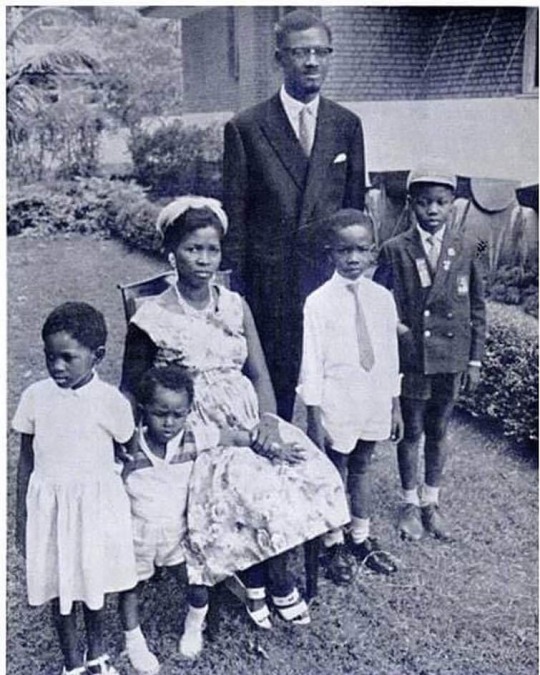
Lest We forget: The last letter written by Patrice Lumumba to his wife, Pauline, just before his death on January 17, 1961... "My beloved companion, I write you these words not knowing whether you will receive them, when you will receive them, and whether I will still be alive when you read them. Throughout my struggle for the independence of my country, I have never doubted for a single instant that the sacred cause to which my comrades and I have dedicated our entire lives would triumph in the end. But what we wanted for our country — its right to an honorable life, to perfect dignity, to independence with no restrictions — was never wanted by Belgian colonialism and its Western allies, who found direct and indirect, intentional and unintentional support among certain high officials of the United Nations, that body in which we placed all our trust when we called on it for help. They have corrupted some of our countrymen; they have bought others; they have done their part to distort the truth and defile our independence. What else can I say? ‘That whether dead or alive, free or in prison by order of the colonialists, it is not my person that is important. What is important is the Congo, our poor people whose independence has been turned into a cage, with people looking at us from outside the bars, sometimes with charitable compassion, sometimes with glee and delight. But my faith will remain unshakable. I know and feel in my very heart of hearts that sooner or later my people will rid themselves of all their enemies, foreign and domestic, that they will rise up as one to say no to the shame and degradation of colonialism and regain their dignity in the pure light of day. We are not alone. Africa, Asia, and the free and liberated peoples in every corner of the globe will ever remain at the side of the millions of Congolese who will not abandon the struggle until the day when there will be no more colonizers and no more of their mercenaries in our country. I want my children, whom I leave behind and perhaps will never see again, to be told that the future of the Congo is beautiful and that their country expects them, as it expects every Congolese. https://www.instagram.com/p/CLVemuDFc6x/?igshid=pxdfam2tk4kq
0 notes